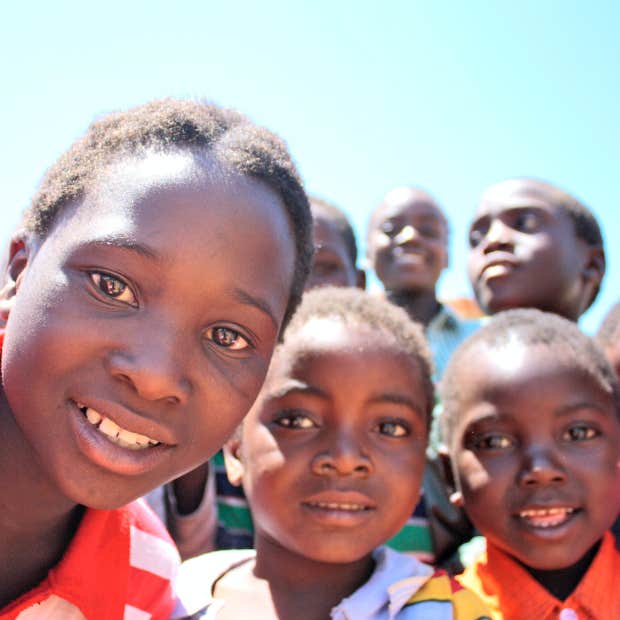An Anthropologist Was Taught The Emotional Lesson Of 'Ubuntu' From Kids In A South African Tribe — And It's Something American Kids Should Learn, Too
"I am because we are."
 mixetto via Canva / hadynyah via Canva
mixetto via Canva / hadynyah via Canva A TikTok post from someone calling themselves Eddie Baltimore referenced the South African concept of Ubuntu, a term rooted in Bantu languages, a group of sub-Saharan languages.
The story relayed through TikTok doesn’t cite sources, though it draws on ideas that are key themes in African philosophy and political theory. The weight and meaning of Ubuntu are both complex and startingly simple: We are all connected.
An anthropologist was taught the meaning of 'Ubuntu' by kids in a South African tribe — and its core lesson is something American kids should learn, too.
According to the TikTok post, “An anthropologist visited a Xhosa tribe in South Africa. He played a game with the kids where he would put a basket of fruit near a tree. He wanted them to run to the tree and the first one that got there would get all the fruit.”
 Photo: Shelagh Murphy / Pexels
Photo: Shelagh Murphy / Pexels
The unnamed anthropologist posited that the kids would readily engage with his Western, individualist worldview, but their response to his game surprised him.
“He set the basket of fruit near the tree and told them, ‘Ready, set, go,' but they all held hands and walked to the tree together. He laughed and said, ‘What are you doing? The first one that gets to the tree gets all the fruit.’ And the kids said, ‘Ubuntu. How can one of us be happy if the rest of us are miserable?’ Ubuntu means, ‘I am because we are.’”
The philosophy of Ubuntu can be explained in English through the phrase, “A person is made a person by other persons.”
Ubuntu places emphasis on community, standing in direct opposition to the American way of life, which holds tight to the importance of the individual above all else.
Archbishop Desmond Tutu referenced the concept of Ubuntu during his time as the Chairperson of the Truth and Reconciliation Commission, which was established in 1996 as a restorative justice body in post-apartheid South Africa. Tutu held to the belief of Ubuntu as a conflict resolution philosophy. Other prominent scholars and public figures have noted the value of Ubuntu as a concept that inexorably connects an individual person to their larger community.
One framing of Ubuntu maintains that it “refers to the pattern of interconnectedness between people... a position that views an individual as being nothing without the community, and the community being nothing without the individual.”
The United States exists on the exact opposite side of the philosophical spectrum. Everything from our economic structure to our lack of access to social services holds to the idea of rugged individualism, as though we’re shouting into the void that we can survive in this harsh world entirely on our own.
Yet by this point in history's push toward the future, it’s clear that no person is an island. We need each other to survive and thrive.
 Photo: Blue Ox Studio / Pexels
Photo: Blue Ox Studio / Pexels
An article from the peer-reviewed academic resource, the Internet Encyclopedia of Philosophy, explains how theologian Michael Battle expanded on Tutu’s interpretation of Ubuntu, by exclaiming it “a gift to the Western world.”
Spend any amount of time engaging with an American toddler and you’ll be sure to hear the word, "Mine!" on repeat. As caregivers across the U.S. have said over and over, “Sharing is caring,” yet how can we expect kids to put that thought into practice when our society isn’t set up in a way that actually shows each other care?
The resonance of the story of South African kids teaching an anthropologist about Ubuntu is echoed in the sentiment held by the thousands of comments below the TikTok post, emphasizing the value of showing kindness, love, and empathy to all, above everything else.
Alexandra Blogier is a writer on YourTango's news and entertainment team. She covers social justice issues, pop culture analysis and all things to do with the entertainment industry.

